Whether you're a homeowner or landscaper, achieving the perfect lawn can be a daunting task. There are many factors to consider, such as soil quality, watering, mowing height and more. However, with careful planning and the use of humate products, your lawn will become the envy of the neighborhood.
Humate is a common ingredient in several turf products marketed as growth promoters, soil conditioners, soil activators or turf stimulants. But what is humate? What are the benefits of applying humate to your lawn?
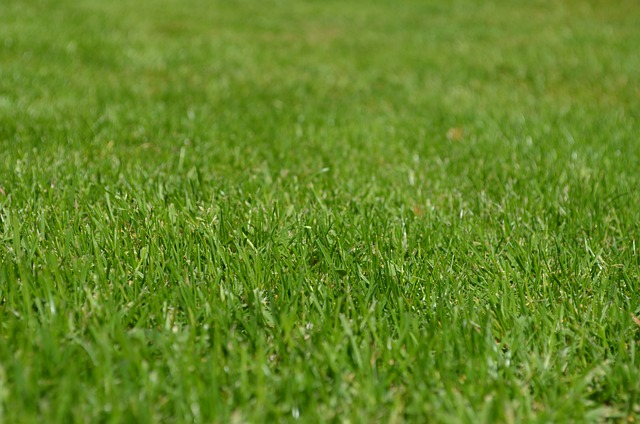
What is humate?
At the most basic level, humate is organic matter that makes up humus, the main organic fraction of soil. Humic substances are present in all soils and sediments that build up in the earth and contain humic acids, which have long been touted for their benefits to soil and plant health. Fulvic acid is a part of humic acid, and they are sometimes used synonymously.
We can separate humic acid from fulvic acid by dropping the pH back down with an added acid. The remaining solution contains fulvic acid, and the heavier solids that flocculate are humic acid. Humic acid is bigger in molecular form than fulvic acid, and it's not necessary to search for each of them in individual products. In fact, most humate lawn products contain both humic and fulvic acid.
Chemically speaking, humic acid contains more carbon and less hydrogen than the animal and plant residues from which it is derived. This happens when microbes decompose the organic matter over a long period of time. In simple terms, humates are the result of microbial digestion and decomposition.
Benefits of Humic Acid
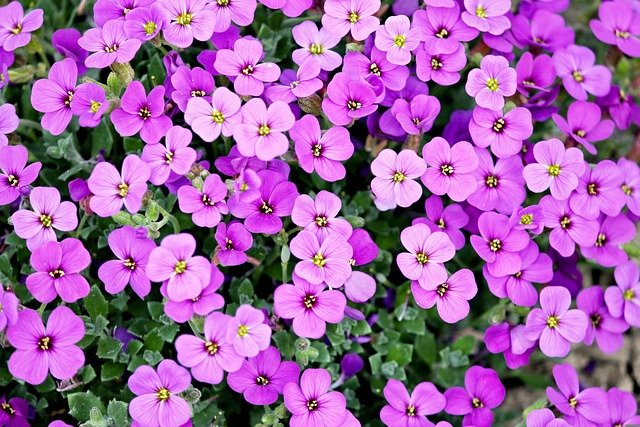
Improves Soil Structure
Humic acid breaks up compacted soil, which makes it easier to work or till. It also increases aeration, allowing the plant roots to grow bigger and stronger. Stronger root systems allow the grass to green faster and become more drought tolerant.
Increases Water Holding Capacity
With humic and fulvic acids, the soil is better able to hold moisture, which reduces the amount of water needed to grow grass or crops. Water will go deeper into your soil, allowing your lawn's roots to grow deeper.
Helps Nutrient Retention
University studies show that using humate soil conditioner amendments when planting new sod, grass seed, trees and shrubs will help them adapt to their new environment and provide a much greater first-year establishment. Humate soil conditioners, like Genesis, chelate nutrients in the soil quickly so that more nutrients are available. This allows for the greatest turf performance without having to use the highest concentrations of fertilizers.
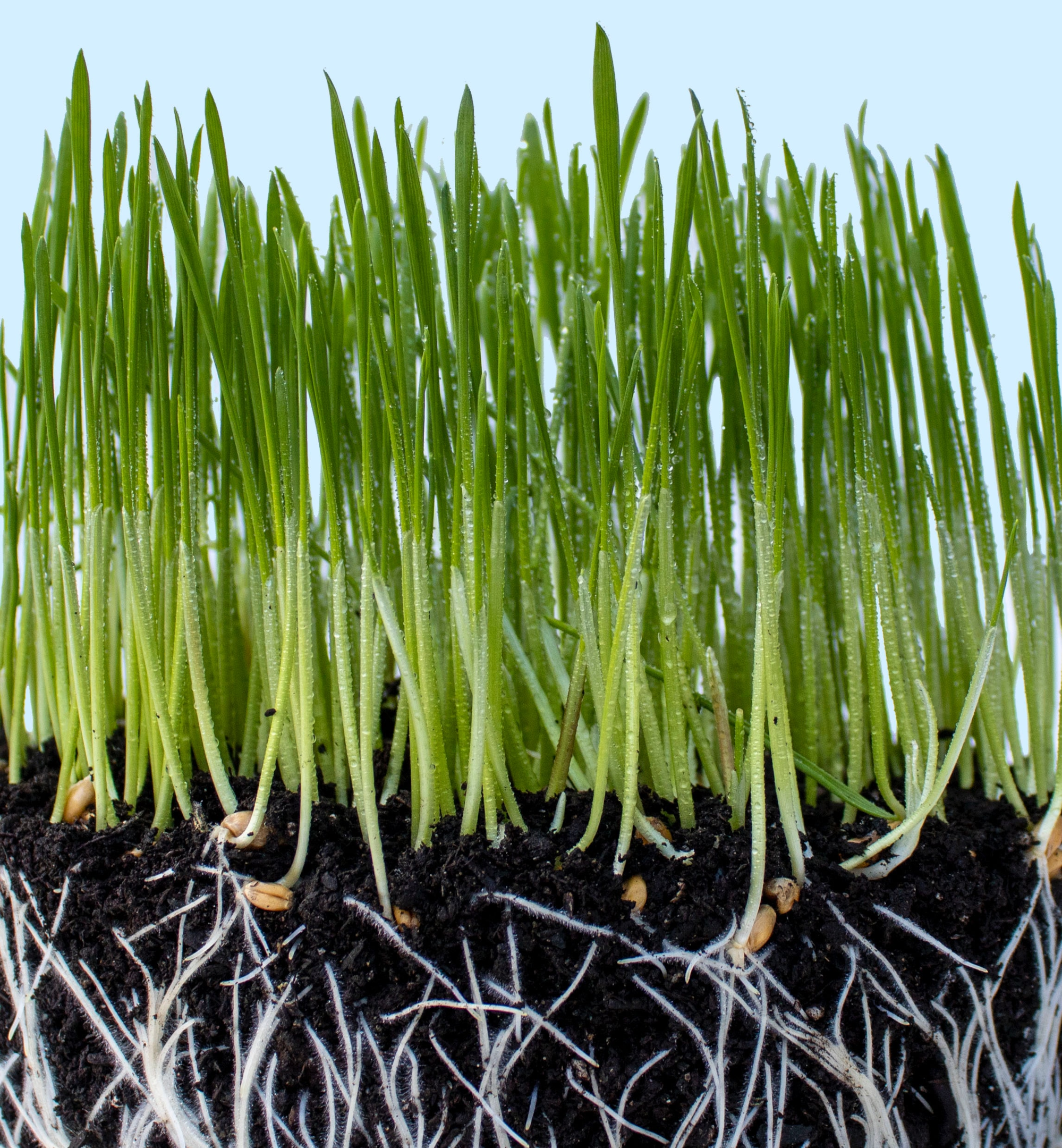
Improves Soil Biology
Soil biology is very important to plant life. Microscopic powerhouses like bacteria and fungi do all the heavy lifting for the plants in a symbiotic fashion. To grow a healthy lawn, you must have a healthy ecological system teeming with microbes, and humic acid helps create just that!
Improves Cation Exchange Capacity
According to UGA Extension, "Cation exchange capacity (CEC) is a measure of the total negative charges within the soil that adsorb plant nutrient cations such as calcium (Ca2+), magnesium (Mg2+) and potassium (K+). As such, the CEC is a property of a soil that describes its capacity to supply nutrient cations to the soil solution for plant uptake."
Michael Meléndrez on Eco Farming Daily explains, "Through chelation, humic substances increase the availability of these cations to plants."
Overview of Benefits
-
Reduces the compaction of heavy clay soil
-
Builds organic matter in soils
-
Increases the soil's capacity to retain water
-
Reduces water evaporation from soils
-
Increases grass seed germination percentage
-
Allows water to penetrate soils easier
-
Vastly increases nutrient availability and uptake
-
Stabilizes soil conditions
-
Enhances the movement of elements up to the plant roots
-
Reduces the salinity in soil by sequestering sodium and salts
-
Stabilizes soil pH
-
Improves water retention
The combination of these benefits makes humic acid a great option for lawn care on a personal or commercial level.
When to Apply Humic Acid to Your Lawn
To improve the soil's health, apply humic acid during the spring and summer months. Applying humic acid before fertilizer is applied will give you the most benefits. Choose the most wind-free days, and apply during the morning and afternoon so that no fluid mixture of acid is evaporated.
By using humic acid in addition to fertilizer, you will increase the beneficial effects of your lawn fertilizer. You really can't use too much humic acid, so don't worry about over-application of humate products unless they have added ingredients that may burn plant roots, like nitrogen.
Our Natural Lawn Products
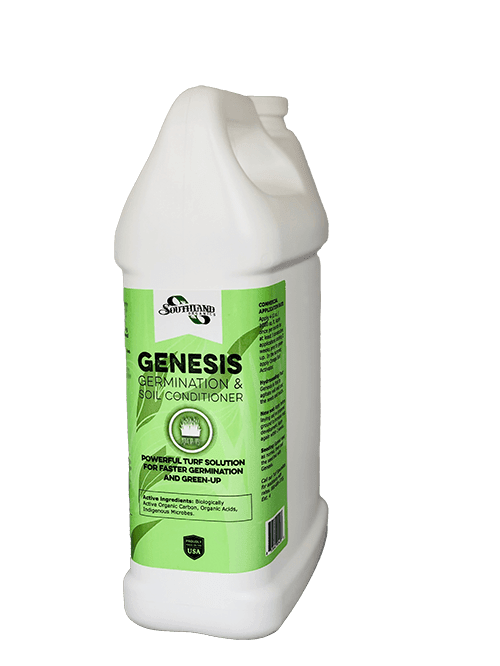
Genesis Soil Conditioner
Genesis prepares your turf for summer by adding activated carbon and rich biology. It has been scientifically proven to increase grass seed germination rate, plant height and mass area.
Genesis is applied in the spring. As a soil amendment, Genesis is considered a soil conditioner because it improves soil texture through organic material, while also improving cation exchange capacity, soil pH, water holding capacity and soil compaction.
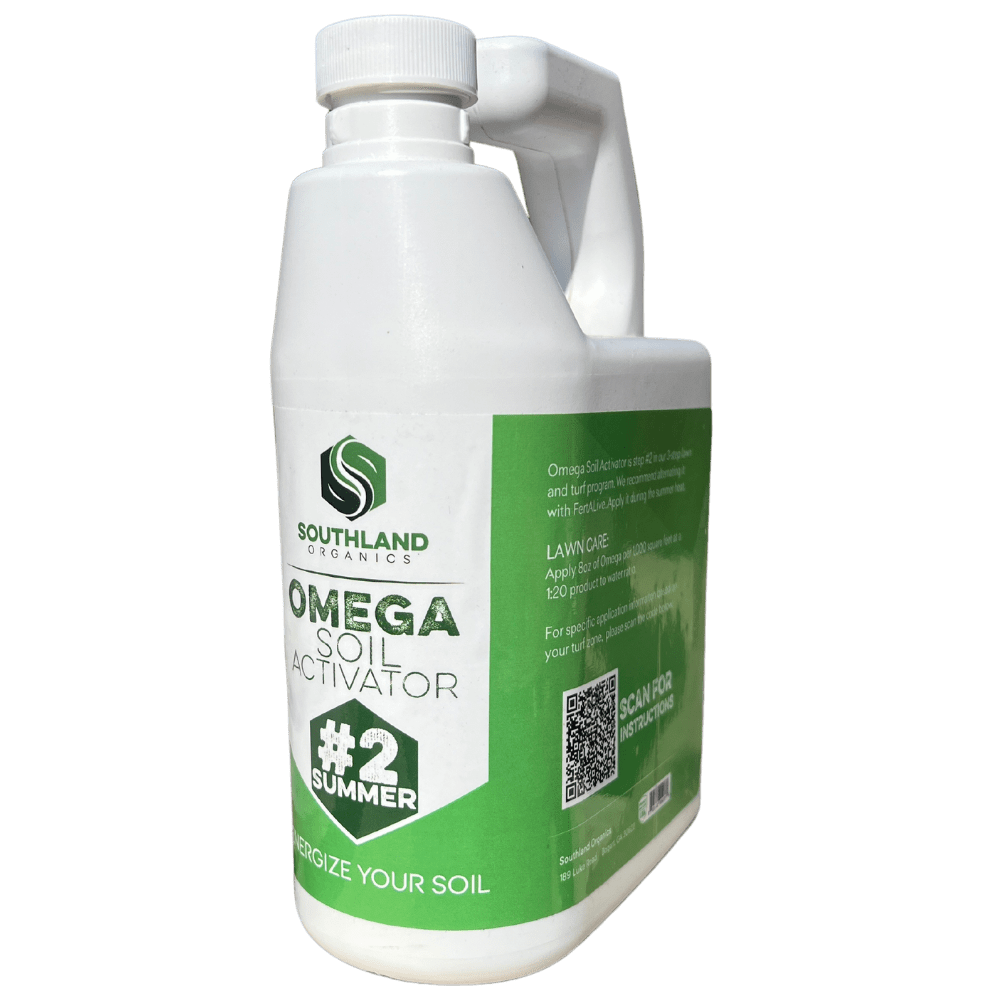
Omega Soil Activator
Omega is our proprietary blend of beneficial bacteria that promotes nutrient uptake and builds resilient turf. Omega is applied in the summer with FertALive.
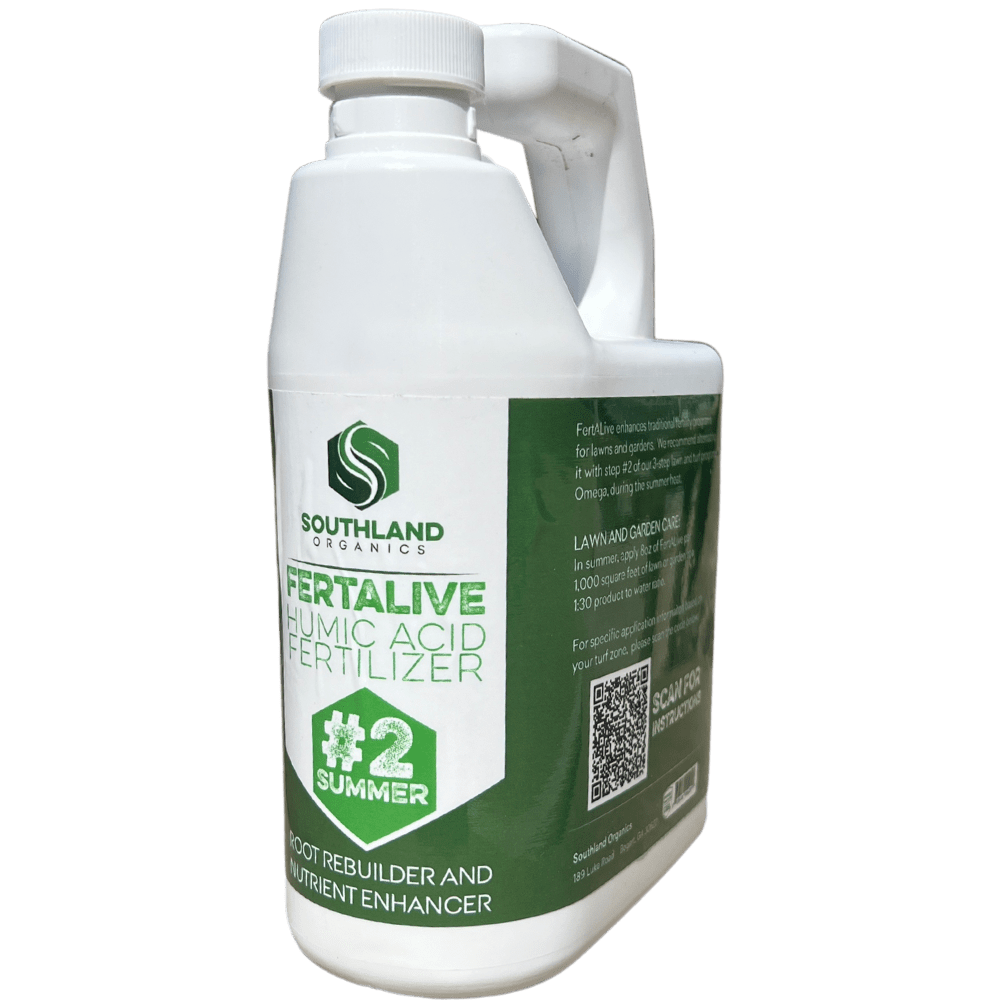
FertALive Humic Acid Fertilizer
FertALive is an organic fertilizer and a powerful, effective nutrient enhancer with Chilean nitrate. FertALive is applied in the summer with Omega.
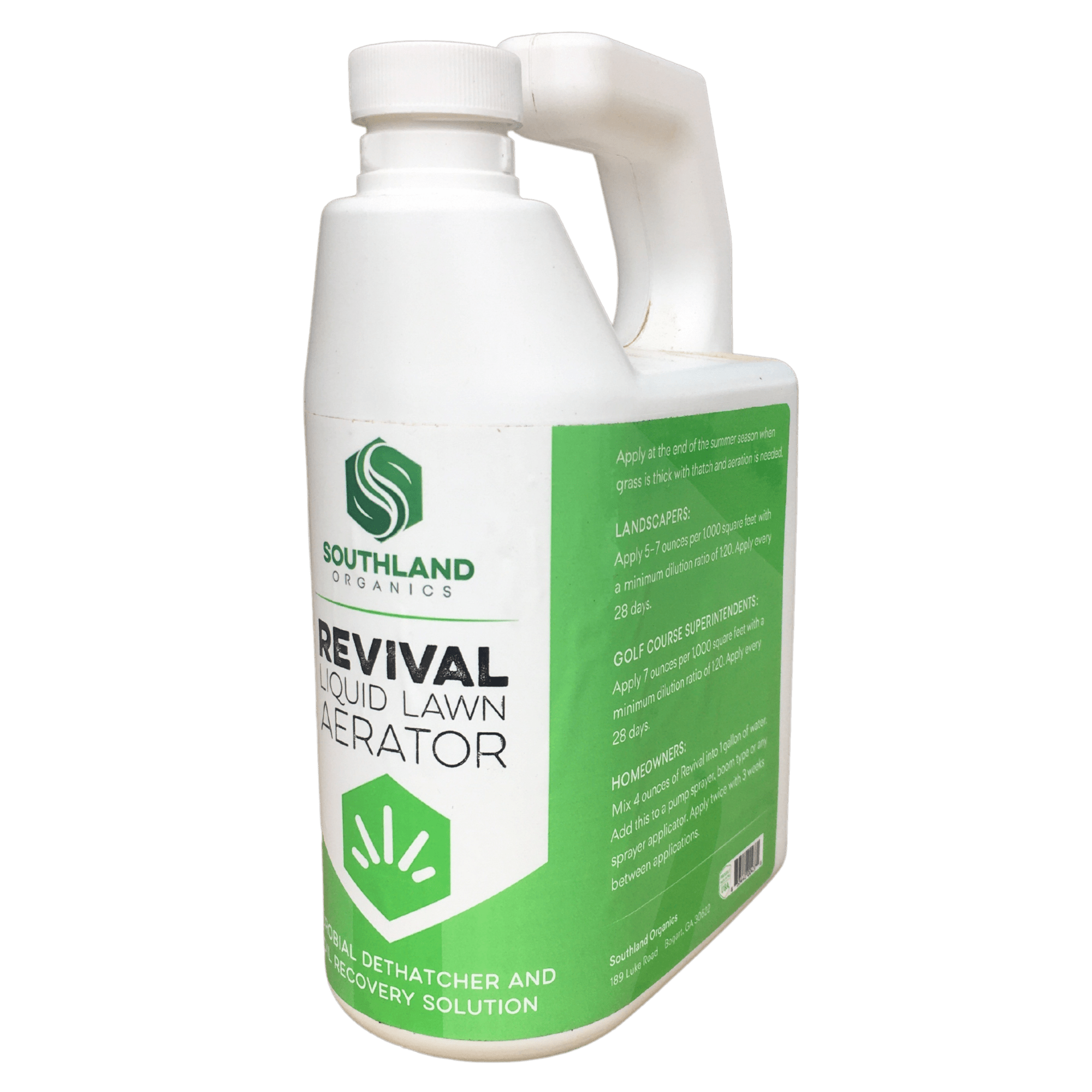
Revival Liquid Lawn Aerator
Revival is the ultimate microbial dethatcher, liquid aerator and compost accelerant. It revives turf to healthy and lush conditions, helps break down grass clippings and improves compacted soil.
The "Secret Ingredients"
To supercharge soil with the building blocks that turf grass needs to thrive, our turf and lawn care products leverage three core features: beneficial microbes, organic acids and active carbon.
Beneficial Microbes
The added beneficial microbes in our products help decompose residual pesticides and herbicides and unlock bound nutrients in the soil. This makes nutrients available to plants in simpler, more easily absorbed forms. Microbes amplify conventional programs by making your inputs work harder for longer. Adding beneficial biology to soil has been shown to improve soil structure and help break up clay soils.
Organic Acids
Organic acids and top-quality, organic carbon work to break surface tension of compacted soils and deliver oxygen to the root zone. Grass and plants grows deeper roots in oxygenated soil, helping it resist disease and overtake weeds.
Active Carbon
Carbon is the main building block of all organic life. In fact, 50 percent of plant life is made up of carbon. Soil carbon feeds microbes and is critical to microbial health. In turn, the microbes assimilate nutrients and deliver them to the roots for growth and development. Carbon is the ultimate macro element that lawns and plants need to thrive.
Contact Us
To learn more about our products and the effectiveness of humate for lawns, contact us at [email protected] or 800-608-3755.








